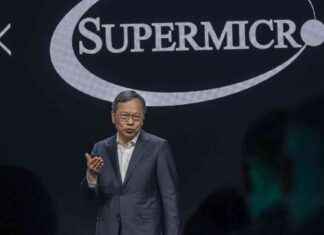Sign up for one of our email newsletters.
Updated 21 minutes ago
The chaos at Toshiba, the Japanese corporate giant, deepened Tuesday, with its chairman resigning and the company saying it would book a $6.3 billion loss related to its U.S. nuclear business.
Analysts are now speculating about the possibility that Toshiba, which employs almost 200,000 people in Japan and has significant investments in the United States, will have to file for bankruptcy.
“This is one of Japan's historic corporations, and it's very important to the Japanese economy, so this could be very significant for Japan,” said Tom O'Sullivan, a Tokyo-based energy analyst. “It would even impact Japan's sovereign credit rating if there's a knock-on effect.”
The news came a day after government statistics showed the Japanese economy grew by an anemic 0.2 percent in the three months to December, the third consecutive quarter that growth in the world's third-largest economy had slowed.
Toshiba executives were due to announce quarterly earnings Tuesday, but they failed to show up. Instead, the company said it was “not ready” and asked for another month to file.
The company's shares fell 8 percent in local trading Tuesday.
After the stock market had closed, Toshiba said it would take a $6.3 billion hit related to Westinghouse's acquisition in December of Stone & Webster, a nuclear construction business, from Chicago Bridge & Iron.
One of those who assumed a top role in the wake of the scandal was Chairman Shigenori Shiga, a longtime executive in Toshiba's nuclear business. The company said Shiga would resign as chairman, effective Wednesday, and former Westinghouse Chief Executive Danny Roderick was stripped of his executive post at Toshiba headquarters.
Toshiba, which bought a majority stake in Pittsburg-based nuclear power company Westinghouse in 2006, earlier said it had received internal data late last month about irregularities during the acquisition. It had learned that controls at Westinghouse had been “insufficient” and the company had used “inappropriate pressure” to make the acquisition.
“We concluded on Monday afternoon that we need further research on the internal reporting … and its impact on financial results,” the company said in a statement, adding that its lawyers and an independent auditing firm were still poring over the details. Japanese media reported that the delay was due to a disagreement between Toshiba's management and its auditors. O'Sullivan, the analyst, said he thought there had probably been a dispute about whether to issue “going concern” notice, often a precursor to liquidation or bankruptcy.
“My guess is that the auditors wouldn't sign off on the accounts with a going concern order,” he said
Our editors found this article on this site using Google and regenerated it for our readers.







